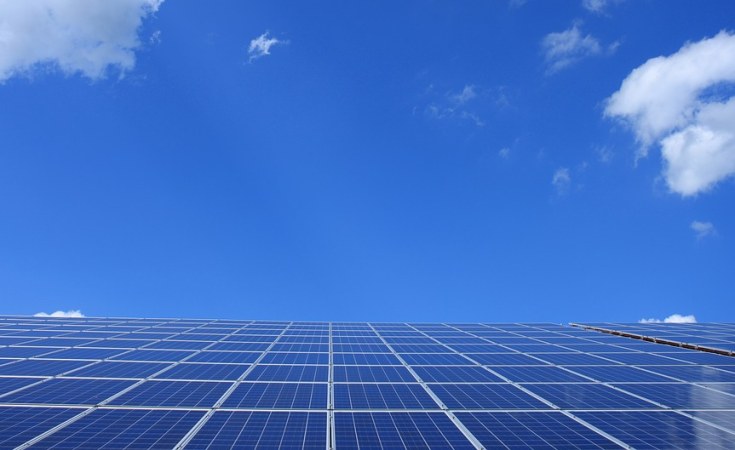Africa boasts massive energy production potential, yet millions of people are without electricity. At a recent roundtable in Dakar, energy experts said that technology transfer is crucial to achieving energy transition.
During the "Africa Roundtable," political, economic, and civil society decision-makers discussed strategies for achieving a just energy transition. They also talked about strengthening the resilience of countries in the face of food insecurity.
The talks were held in Senegal's capital Dakar, under the theme: "Europe and Africa, together for a just energy transition." DW was the media partner for the event -- a first on the continent.
While Europe is working on its Green Deal, many African countries still face challenges with electrification. Nearly half of sub-Saharan Africa (approximately 600 million people) has no access to electricity.
Energy experts say African countries can only achieve the energy transition towards a sustainable economy that at the same time conserves the environment if countries have new technologies to produce, such as electric batteries, solar panels, or wind turbines.
Africa's energy paradox
"The paradox is that the continent has strong under-exploited potentials for energy production but lacks the necessary technologies for their uses.," Al-Hamndou Dorsouma, head of the climate change and green growth department at the African Development Bank (AfDB), told DW.
"During this round table, Europeans and Africans were able to identify how to move forward concretely on the issue," Dorsouma said.
During the COP27 climate talks in Egypt, developing countries had once again insisted on the transfer of technologies that they claimed had been slow to materialize.
Call to strengthen dialogue and partnerships
"To achieve this, we are convinced that we must dialogue and strengthen partnerships to find solutions," Ingrid Hamm, cofounder of the Global Perspectives Initiative (GPI) and initiator of the Africa Roundtable, said.
"That is what we want, by organizing this meeting in Dakar after COP27," Hamm told DW.
For a country like Senegal, the question of how to reconcile the desire to strengthen energy independence, the awareness raised by the ecological crisis, and the desire to contribute to a just energy transition are acute.
Oulimata Sarr, Senegal's minister of economy, planning and cooperation told DW that the theme of the roundtable comes at "the right time and is in line with the geopolitical and economic issues of our times.
Seizing the opportunity
"We have an opportunity here to remind the international community of the need for Africa to lead a just and equitable energy transition," Sarr said.
Senegal -- which aims to exploit its oil -- has announced that it will also start exporting gas next year. Some environmental activists see this as a contradiction.
However, Sarr defended the exploitation of his country's fossil energy sources, saying it would allow the country to "take advantage of its natural resources for its industrialization needs and sustainable job creation, in line with its economic development plan."
Aissatou Sophie Gladima, Senegal's minister of petroleum and energy, said the West African nation aims to finance the energy transition through fossil fuels.
Angela Merkel: Africa has potential
In a written message addressed to the participants, former German Chancellor Angela Merkelreiterated Africa's enormous potential. For Merkel, the stability of Africa is imperative for Europe's survival.
"Security, stability and sustainable economic development on our neighboring continent are more important than ever for Germany and for Europe," Merkel said, adding that this was crucial, especially in a world where all areas of our lives are impacted by increasingly global interconnectedness.
Edited by: Chrispin Mwakideu


